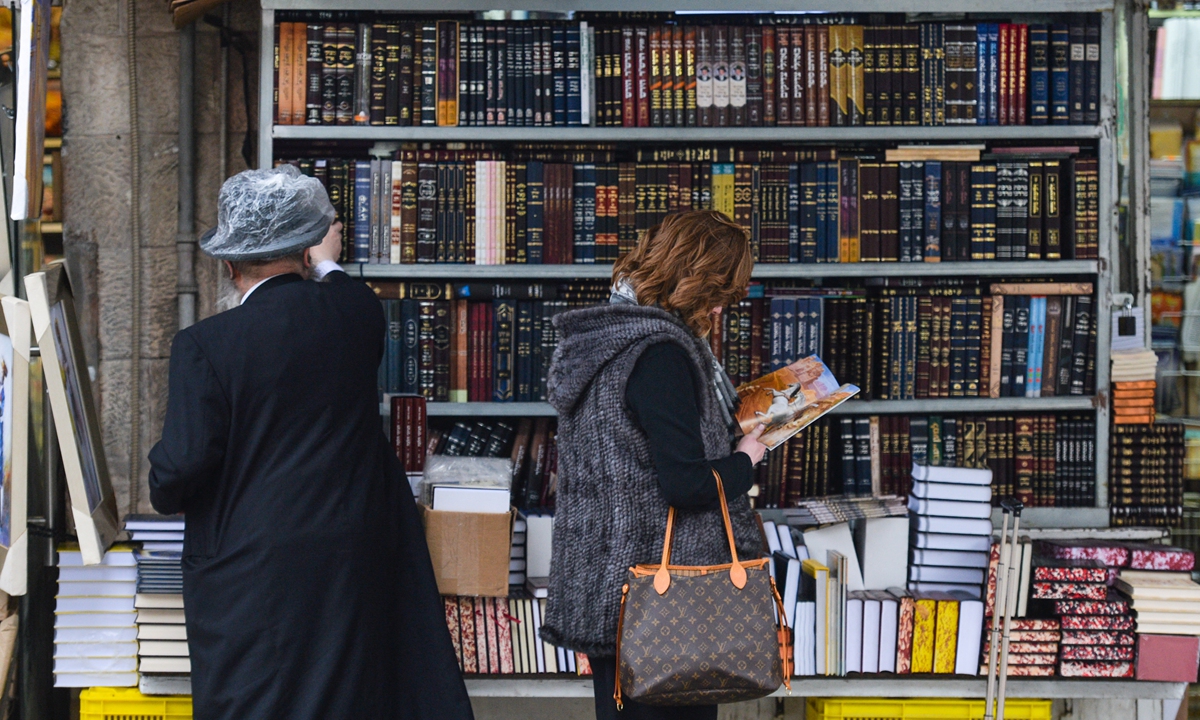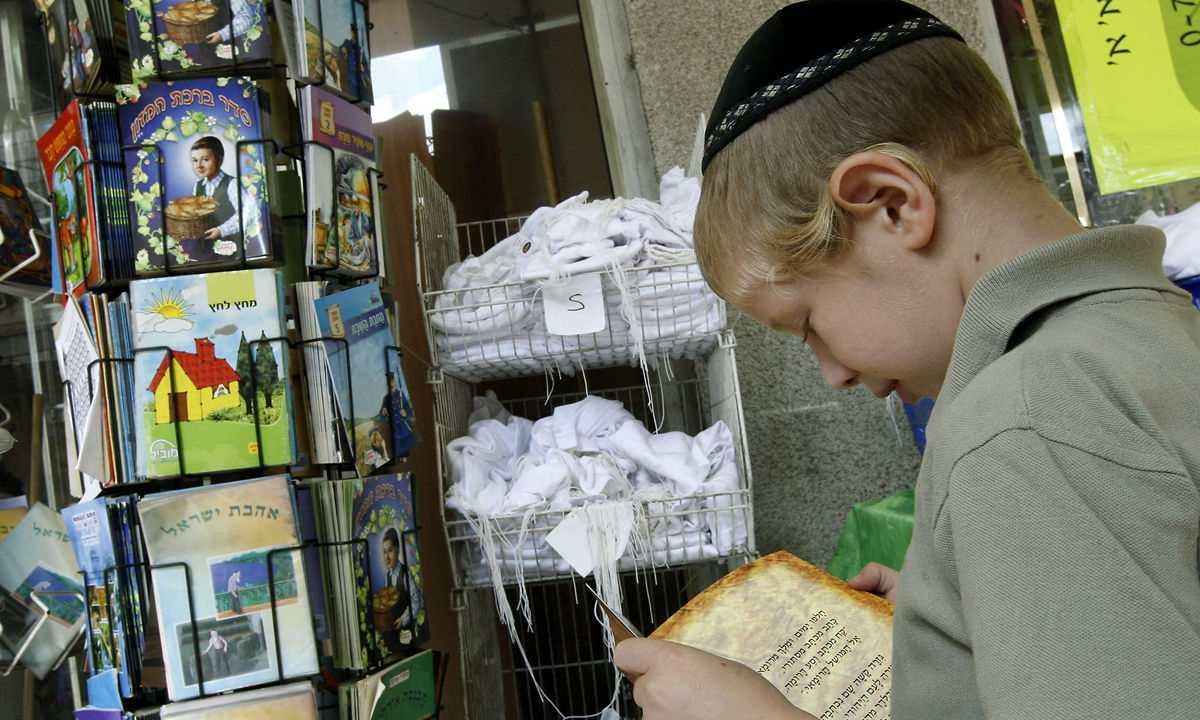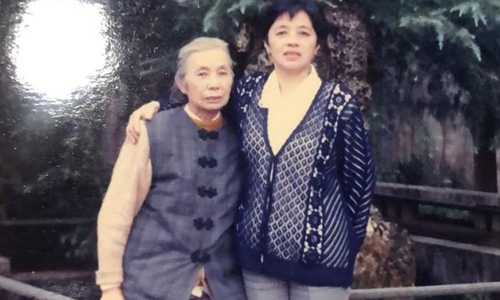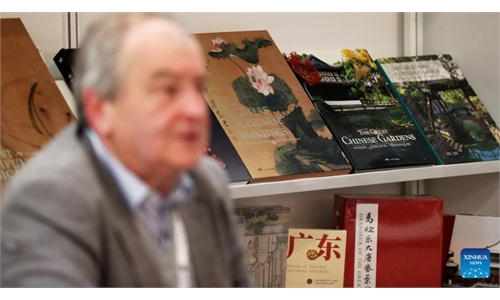ARTS / BOOKS
Israeli publisher telling stories of China in Hebrew
Living the dream

Customers read at a street book-shop in Jerusalem, Israel on March 10, 2020. Photo: AFP

A young boy reads a comic book at a shop in the Israeli town of Bnei Brak near Tel Aviv on October 29, 2009. Photo: AFP
An artistically designed blackboard written with "Ni hao," which means "Hello" in Chinese, welcomes every guest to Pierre Lavi's home in Jerusalem.Next to it, on the cabinet, was the certificate and trophy that Lavi received in 2020 as one of the 15 prize winners of the 14th Special Book Award of China.
As an Israeli publisher, Lavi has been devoting himself to translating Chinese books into Hebrew since 2016. The subjects range from China's development and economic policies, to poems, novels and academic textbooks.
Lavi began reading books about China as a boy in the 1970s when cultural exchanges between China and Israel were still scarce. Through the books, he became increasingly fascinated by the oriental country steeped in history.
The lack of more China-relevant books in Hebrew turned out to be a catalyst for his professional exploration in adulthood. After writing several books in his early years, he set up the Lavi Publishing House in 2019 to extend and deepen his connections with China in book pages.
"Establishing ties with China in this way has fulfilled my childhood dream," he said.
Now in his late 50s, the modern China Lavi is witnessing is completely different from what he learned about in his younger days from books. In 2019, he visited Chengdu, capital city of Sichuan Province in Southwest China, where he tried the exotic hot pot and saw adorable pandas for the first time.
Besides the cultural symbols, Lavi said he was more amazed by the modern infrastructure, convenient public services, and rapid development of science and technology even in a landlocked Chinese city. It was then that the Israeli publisher realized the real imperative of strongly promoting the mutual understanding between the two peoples.
"My philosophy is that culture, especially books, is an important bridge between people. You may not be able to speak each other's language or understand each other's culture, but reading can bridge this gap," Lavi told the Xinhua News Agency.
Apart from translating Chinese books into Hebrew, Lavi has also co-authored two books with his daughter, Shira Wants a Rock from the Moon and Shira Wants to Win the Nobel Prize, both of which were published in Chinese by China's Commercial Press.
Given the distance between China and the Middle East, Lavi highlighted the particular importance of reducing misunderstandings between peoples from both sides.
"You can't know each other perfectly, nor can you be exactly the same, but you can get a lot of inspiration by reading between the lines."
Noting that what he had achieved was "far from enough," the Israeli said he looked forward to cooperating with more Chinese partners and mobilizing more talented Chinese-Hebrew translators to press ahead with cultural exchanges.
He has set his plans in motion by facilitating the building of a Chinese cultural library and developing a TV show, in which he will interview Israelis and ask them to introduce Israeli culture and tourism to Chinese audience.
"I have so many ideas, but I'm still looking for the real and right partners who can bring the two nations closer," he said, adding that from a historical perspective, the Chinese and Jews share many similarities, as they have both suffered much but are full of wisdom.
"In many aspects, Chinese wisdom is cherished by us. When I published the Chinese book for the first time, I deeply held this belief," he said.



